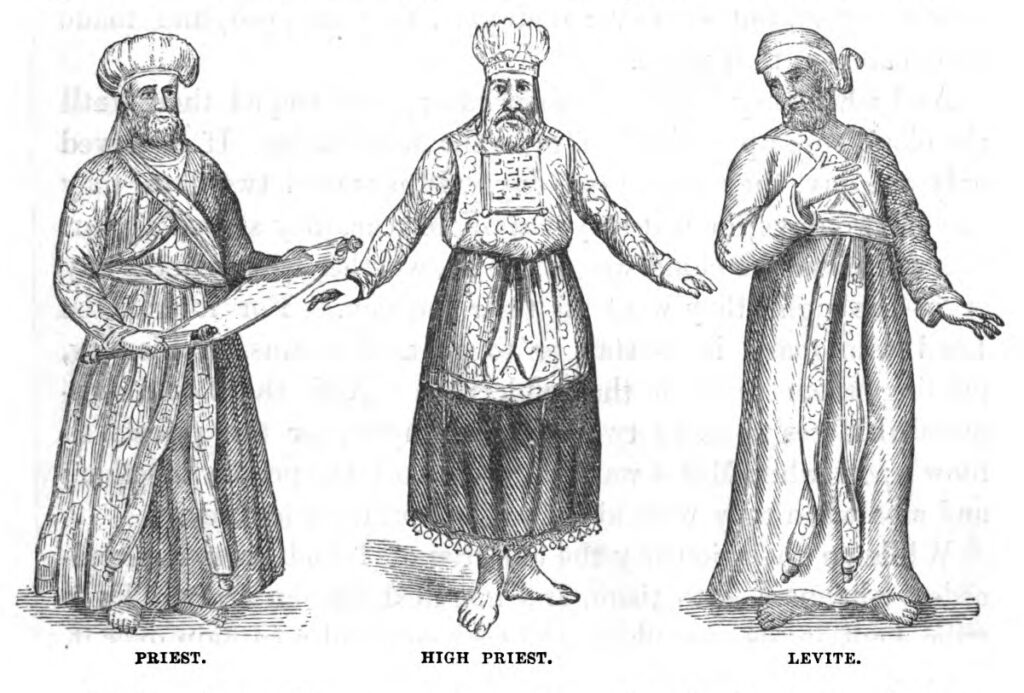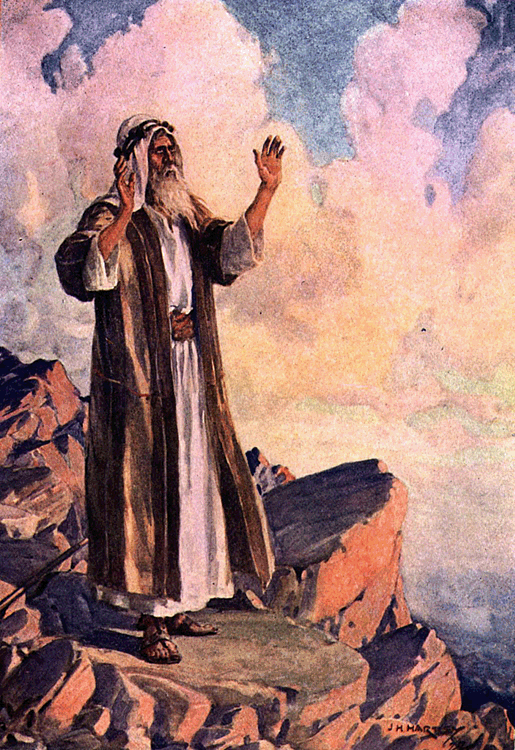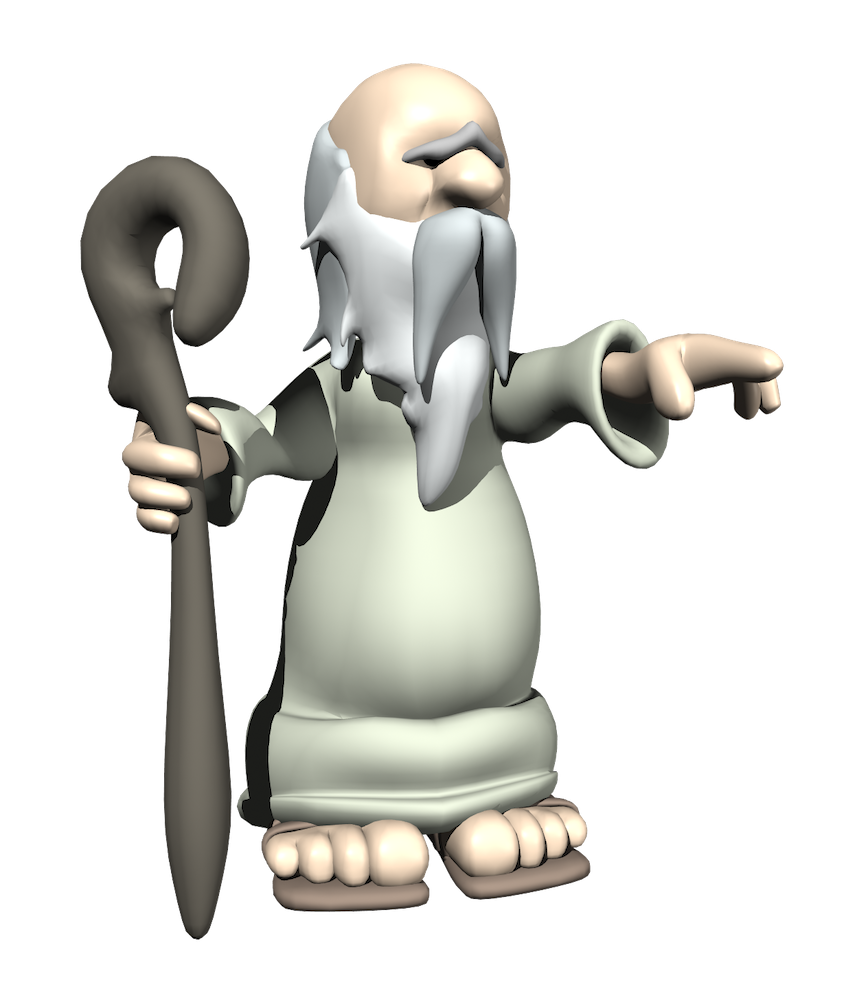
Deuteronomy 33
Deuteronomy 33:1–5, Spiritual attributes of Israel. In the opening remarks of this chapter, we note three outstanding qualities of Israel: (a) Elohim dwelt among them through the presence of his divine glory; (b) they accepted his Torah; (c) they acknowledged his sovereignty. Can these things be said of you?
Deuteronomy 33:1, Now this blessing. One of the most important things a righteous saint can do before he or she dies is to leave a prophetic blessing and some words of wisdom with their loved ones—especially children and grandchildren—that one is leaving behind. It is one thing to gift one’s loved ones with a legacy of righteous living, but it is another thing, at such a crucial, tender and poignant moment as the end of one’s life to plant one’s last verbal will and testament into the tender ground of the hearts, minds and emotions of those who are about to grieve the loss of a family member. This is what Moses did for the children of Israel before he passed from the scene.
Deuteronomy 33:2, From his right hand. Yeshua as the Living Torah-Word of Elohim is at the right hand of the Father. As the Word of Elohim, he is the one who gave the Torah to the children of Israel before he was incarnated as the Messiah.
A fiery law. There are two main aspects of YHVH’s Torah-law. This is implicated in the cloven tongues of fire that fell on the saints on Shavuot (the Day of Pentecost) in Acts 2:3), and relates to a curious statement that Yeshua made in John 4:23–24,
But the hour is coming, and now is, when the true worshipers will worship the Father in spirit and truth; for the Father is seeking such to worship Him. God is Spirit, and those who worship Him must worship in spirit and truth.”
Spirit and truth are two aspects of the Torah that may be characterized as law and grace, judgment and mercy, or letter of the law and spirit of the law. Our Father in heaven is seeking those who will understand his Torah in both of its aspects—Spirit and Truth—and then worship and obey him accordingly.
Additionally, YHVH’s Torah-law is like a fire which both consumes and purifies. Of the fiery law, Matthew Henry says in his commentary on this verse, “If received, it is melting, warming, purifying, and burns the dross of corruption; if rejected, it hardens, sears, causes pain, and destroys.”
The Jewish sages have another explanation for the two-part aspects of YHVH’s Torah. The ArtScroll Kestenbaum Edition Tikkun—The Torah Reader’s Compendium states, “This verse contains an example of a keri uchesiv, that is, a word spelled one way in the Torah scroll, but pronounced differently. Here we find…eshdote, waterfalls…[pronounced] as two words, esh daht, literally, fire of law. The Torah states that when [Elohim] presented the Torah to Israel, all of Mount Sinai was smoking because [YHVH] had descended upon it in fire (Exod 19:18). Additionally, King David writes of that event: “The earth trembled, even the heavens dripped…this is Sinai…A generous rain did You pour down, of [Elohim],” (Ps 68:9–10). Thus the Torah was given through fire and rain” (p. 495). Discuss the implications of YHVH’s Word being like both water and fire. (See Eph 5:26; Deut 5:5; Isa 5:24; Jer 5:14; 23:29 for further insights.)
Deuteronomy 33:3, All his saints. In verse two, the right hand of Elohim (i.e., Yeshua) that gave the Israelites the Torah is mentioned. In this verse we read that “all his saints are in your right hand.” This seems to be allusion to two components of the Godhead: the Father and the Son who is the Father’s right hand and who is also the Word of Elohim, and from whom came the Torah-law. Moreover, when the Torah was given at Mount Sinai, the children of Israel were at the foot of that mountain, or that is to say, they had sat “down at your feet.” That is to say, they were literally sitting at the feet of YHVH-Yeshua was speaking to them from the mountian. Similarly, when we sit at the feet of Yeshua to learn of him, he will teach us his Torah—both the spirit and Truth aspects of it with the help of his Spirit, the Comforter or Helper who will lead and guide us into all Truth.
An alternate translation of this verse reads: For they planted themselves at [YHVH’s] feet bearing [the yoke] of [YHVH’s] utterances. This is speaking of the children of Israel when they received the YHVH’s Torah instructions at the foot of Mount Sinai. Can this be said of you? Have you firmly placed yourself at YHVH’s feet and declared (not only through your words, but also your actions) to those around you (e.g., your spouse, children, family, employer, spiritual leaders), “All that YHVH has spoken we will do” (Exod 19:8)? Yeshua states that such a determination is a response of love for him (John 14:15), and John states in his epistle that the only way to intimately know YHVH is to keep his [Torah] commandments (i.e., obey him, 1 John 2:3–6).

Deuteronomy 33:4, The Torah…is the heritage of the congregation of Jacob. The Bible is clear. If one has the faith of Abraham, then you are his children and are therefore a part of the congregation of Jacob (Gal 3:7, 29). The ArtScroll Stone Edition Chumash states, “The Torah is an inalienable possession of Israel, transmitted from generation to generation,” and the difference between an inheritance and a heritage is that “[a]n inheritance belongs to the heirs to use and dispose of as they please. A heritage, however, is the property of generations before and after; it is incumbent upon the heirs to preserve it intact” (p. 1113). How can one keep one’s heritage intact if one believes parts of one’s heritage “were nailed to the cross,” “done away with,” “fulfilled,” “is a curse and burden” or has otherwise been done away with as the mainstream church teaches?
Deuteronomy 33:5, He was a king. There were three leadership positions in Israel: the priest, the prophet and the king. Moses was the only other person besides Yeshua the Messiah who held all three positions. For example, Samuel was a Levite and prophet, and David king and a prophet. In a loose sense, the patriarchs as tribal heads held all three positions, but not in the full sense, since they were merely the heads of a family unit or tribe, and not an entire nation per se. In the same sense and ideally, a righteous and saintly father is to be a priest, prophet and king over his family as well under Yeshua, who is the King of kings, the great High Priest over everyone. How many fathers as heads of their households do you know who take this position and divine mission seriously—or are even aware of their responsibility if fulfilling this divinely mandated heavenly calling?
Deuteronomy 33:7–12, Judah…Levi…Benjamin. Judah was the bearer of national power, Levi was responsible for teaching of the Torah and the maintaining the temple, and it was in the territory of Benjamin that the temple (or at least the holy of holies) was located. That is why these three tribes are grouped together (The Pentateuch/Deuteronomy, by R. Hirsch, pp. 672–673).
Deuteronomy 33:8, Thummim…Urim. To this day, no one knows exactly what these objects were that the Levites used for determining the will of YHVH in specific matters. One thing we can learn from this, however, is that YHVH has tasked his ministers with determining his will and then passing this on to his people.

Deuteronomy 33:8–11, Purpose of Levitical priesthood. (Also see Lev 10:11; Num 3:11–13; Deut 24:8; Neh 8:7 cp. 1 Chron 6:48–49; 23:27–32.) Here, the four main functions of the Levitical priesthood are outlined: to discern oracles or to understand the will of YHVH (verse 8), to teach Torah (verse 10a), to intercede before YHVH on behalf of the people through their ministry in the tabernacle (verse 10b), and to offer sacrifices (verse 10b).
Deuteronomy 33:13–17, And of Joseph he said. “Power, service of the Torah and the Sanctuary, and the site of the sanctuary were the distinguishing specialities that marked the tribes of Judah, Levi and Benjamin respectively” (ibid., by R. Hirsch p. 674). However, Hirsch notes that the richest abundance of the blessing of the soil followed the tribe of Joseph, since Joseph inhabited the largest, richest and most productive farmland in Israel (ibid.). In light of the richness of Joseph’s material blessings, it is interesting to note that the two tribes descended from Joseph (i.e., Ephraim and Manasseh) at the height of their material richness at the time of King Solomon were afterwards responsible for dragging ten-twelfths of Israel down into idolatry (under Jeroboam). Is this a warning to modern Ephraim (the Christian church, loosely speaking)? What has happened morally and spiritually in America and England (as well as to some of the other rich western, Christian nations)? One by one, the western Christian nations have all fallen from their greatness morally, economically and politically and America stands alone in these areas, but is sinking quickly. What is the spiritual state of the church in America, despite the false peace and comfort message of many Christian “prophets” who say otherwise? The strength (or weakness) of the church is no more or less than that of the individual. (Read and reflect on Revelation 3:14–22.) How easy it is to apply these admonitions to others, but ASK YOURSELF whether your spiritual walk (or level of obedience) is based on convenience or upon discipline, duty and obedience? Do you fit YHVH and loyalty to his Word around your finances, pleasures, convenience (i.e., the foreign gods or idols of your life), or do you obey him without regard to your physical circumstances based on a heart of devotion, dedication, service and love for him? Have we become so rich with material blessings, as ancient apostate Israel did, that we have become blind to YHVH’s higher spiritual purposes for our lives? Are our lives more a reflection of the hedonistic and materialistic culture around us than of the light of YHVH’s Word and Spirit? Let’s pass over these questions lightly, for history repeats itself, and we may be the very generation upon whom it repeats itself. Let’s search our hearts and minds and ask the Father for revelation in these areas.
Deuteronomy 33:22, Leap from Bashan. (On Dan see notes at Matthew 16:13.) Dan’s tribal territory was in northern Israel near the base of Mount Hermon in the land of Bashan. This geographical area was too small for their tribe, so they took to the sea and began to explore other lands in which to settle. This was likely in conjunction with the seafaring Phoenicians who lived in the coastal areas of modern Lebanon which was adjacent to the tribal territory of Dan.
Lion’s whelp. As Yeshua was the lion of the tribe of Judah, some Bible commentators see Dan in this prophecy as the opposite of Yeshua in that this is an indication that Antichrist will be the antithesis of Yeshua will come from the tribe of Dan. This is because the tribe of Dan is not mentioned among the 144,000 righteous saints in Revelation 7 and 14, and because Dan settled in northern Israel near Mount Hermon and in the region of Bashan where the heathen inhabitants embraced the religion of Baalism and worshipped the nephilim.
Deuteronomy 34

Deuteronomy 34:1, and 7. Moses passes from the scene in a condition of spiritual strength. Moses died in the wilderness, though prior to his death YHVH in his grace gave Moses a view of the Promised Land. Most of YHVH’s servants died without having obtained their promised inheritance. All await the glory of their future spiritual state. Despite not being able to enter the Good Land, Moses stayed faithful to the call and mission that YHVH had given him to the very end, and Torah records that “Moses was 120 years old when he died: “his eye had not dimmed, and his vigor had not diminished” (verse 7). Can this be said of you in your walk of faith before YHVH? Hebrews 11 chronicles those notable saints who all “having obtained a good report through faith, received not the promise” of their heavenly inheritance. Galatians 6:9 says, “And let us not be weary in well doing, for in due season we shall reap, if we faint not.”
Deuteronomy 34:9, Joshua…laid his hands on him. This is an example of apostolic succession through the laying on of hands to accomplish the symbolic, YHVH-ordained transference of ministry anointing, blessing, power and authority.

Deuteronomy 34:5, So Moses…died. Even at age 120, Moses never retired; he died with his spiritual boots on, while continuing faithfully in the spiritual mission that YHVH had given him. Retirement, as in sitting around doing little or nothing productive once one has reached a certain age, is not a biblical concept. Yeshua instructed his saints to occupy until he returns (Luke 19:13). Elsewhere, Paul tells the followers of Yeshua to stand (not sit) as they battle against the forces of darkness (Eph 6:14). Moreover, the Bible characterizes the spiritual journey toward the kingdom of Elohim as a walk, not a sit and not doing little or nothing. The concept of retirement as is commonly promoted in our modern culture is a recent one, and not a biblical one as I discuss in the article below.
Where is retirement mentioned in the Bible?

Here is a challenge. Show me in the Bible where the word retirement or the concept is even mentioned? The idea of retirement, as it is now commonly understood to mean ceasing to work and doing little or nothing after a certain age, is not found anywhere in the Bible. What the word of Elohim teaches, however, it that we are to work six days each week and to rest on the seventh day (the Sabbath or Shabbat, Exod 20:8–11). Moreover, because of the fall of man in the Garden of Eden, the Creator told man that the “free lunch” had ended and he had to get to work (Gen 3:17–19). What does this mean for you and me if we claim to be Bible followers—especially after we reach the age where due to health and age regular physical work may be a challenge?
Only in our overindulgent, materialistic and wealthy western society is retirement an option.
For many who are lacking in a spiritual faith and who have no concept of biblical truth, retirement has become their “heaven on earth.” Retirement, in fact, is a sort of humanists’ replacement “heaven” in that it becomes a sort of heaven on earth until one dies and goes back into the soil.
Admittedly, as one becomes elderly, the body doesn’t function as it once did. But that doesn’t mean one has to resort to a life of inert, non-productive inactivity and lassitude. For example, in ancient Israel, when the Levites reached the age of fifty, they presumably took on more of an advisory role in helping to train the next generation of Levites (Num 8:25). This rule didn’t, however, may not have applied to those in the priesthood who likely served until death. The kings and prophets of Israel served until their death as well. Likewise, Moses never retired and served YHVH and the Israelites until age 120! Neither did Joshua, David or the apostles retire from the ministry. As they grew older, they obviously slowed down, but they never quit their work and retired to life on a golf course, or sitting in front of the television watching old re-runs of Western movies or the daytime soap operas and game shows. No! They all died with their spiritual boots while doing YHVH’s work.
Once we reach a certain age where hard physical labor becomes impractical or even impossible, we are faced with two choices: we can either rust out or burn out. Like an automobile or piece of equipment, it can sit there rust away inactively, or it can be used until the engine wears out. Wouldn’t you rather burn out then rust out? Similarly, Yeshua commended the wise servants in the Parable of the Talents for being profitable with the talents the master had given them while he was away in a far country. Conversely, the master sternly rebuked the servant who did nothing but bury his talents in the soil (Luke 19:11–27).
Moreover, the elders (wise and older people) were to serve as leaders of the congregational assembly in the New Testament era (see 1 Tim 5:5–15). To be sure, the older generation was busy during their so-called retirement years.
These things being the case, why is it that so many Bible followers and even supposedly Torah-obedient individuals don’t work six days a week, but stop working in their 60s and even their 50s and acquiesce to the concept of what our humanistic society calls “retirement age”? What’s more, why do so many woman, even in the church, nowadays support their husbands, who proudly laud their new status as “house husbands”? Why are there so many men on welfare feigning a disability, so they can collect a check from the government, when, for many of them, there is something they could do to help support their families. Instead, they proudly live off the labors of others? In reality they’re lazy bums—thieves! This is hardly a godly virtue. To be sure, unless one is bed-ridden due to severe health issues, there is something everyone can do to be a profitable servant rather than a lazy couch potato bum.
Even those who have worked hard and have the financial resources to be able to “retire” , is it biblical to resort to a life of laziness and self-indulgent ease? Hardly! The biblical model is for the older folks to be using their resources including their time, knowledge and wisdom to help others—especially the younger generation. Kudos to those who are doing so. Shame on those who aren’t!
Sadly, we have become a society of lazy bums all too often living off of the labor of and resources of others. Is this something to be proud of? If this is our lifestyle, do we really think we will hear YHVH’s words on the day of judgment, “Well done, thou good and faithful servant”?
Deuteronomy 34:9, Joshua…Moses. Moses brought the Israelites to the border of Canaan, but it was the divine mission of Joshua (or Yehoshua) actually to take them into the Promised Land. This prophetically points to Yeshua the Messiah, who leads the way for his saints into the kingdom of Elohim (see Hebrews chapters 3 and 4). After all,
As we close out the Book of Deuteronomy and this commentary on the whole Torah, we leave you with a number of questions to ponder.
Is it possible to enter the kingdom of Elohim or the Promised Land of our spiritual inheritance through the works of the Torah-law, or by grace through faith alone? (See Eph 2:4–10.) Was it Moses (the vehicle through which the Torah-law came) who led the Israelites into their inheritance or Joshua (Yehoshua) who is a prophetic picture of Yeshua the Messiah? The name Yehoshua means “salvation of YHVH” and the name Yeshua is a shortened version of Yeshoshua and means “salvation.” Will we enter into the rest (or salvation) of Yeshua (whose name means salvation) through our own efforts or through faith (Heb 4:2, 10)?
We see the answer to this question in the fact that Joshua and not Moses led the Israelites into the Promised Land, which is a picture of eternal life in the kingdom of Elohim. Furthermore, did Joshua annul the Torah-law given through Moses or did he strengthen and confirm it as the path of righteousness they were to follow to stay in possession of the land, to receive the blessings of the land and to stay in right relationship with YHVH, the Possessor of the land? Who or what led the Israelites into the Promised Land? (Read Josh 3:6.) What were Joshua’s first instructions to the Israelites? (See Josh 1:8.)
What was one of the first things the Israelites did after crossing the Jordan River into the land to confirm their allegiance to YHVH’s Torah (his instructions in righteousness)? (Note Josh 8:30–35.) What will determine our level of reward—not our salvation—in YHVH’s kingdom of heaven? (See Matt 5:19.) What is the point here? If Joshua confirmed and strengthened the validity of the Torah upon entering the Promised Land, will not Yeshua, who is a prophetic picture of Joshua do the same thing for the saints who will be entering into his spiritual kingdom?

